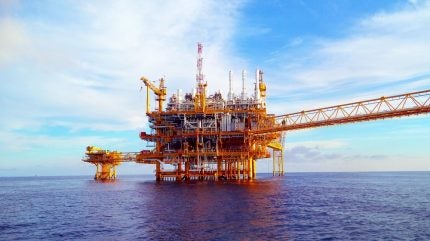
In a post on social media platform Truth Social, Donald Trump condemned the UK as he urged the nation to “open up” the North Sea for oil production while calling for the removal of wind energy production in the basin.
The US President-elect’s remarks come in response to Houston-based hydrocarbon company APA Corporation (formerly known as Apache) announcing its intention to exit the UK North Sea by 2029, citing “uneconomic” regulations and energy tax hikes imposed by the UK Government.
Trump’s comment that “the UK is making a big mistake” refers to the driving factor behind APA’s retreat: the government’s decision last October to increase the North Sea windfall tax from 35% to 38%, bringing the oil and gas industry headline tax rate to 78% – among the highest in the world.
The tax aims to generate funds to help the country meet its renewable energy goals, including a target to decarbonise its power sector by 2030.
The North Sea, once a major hub for oil and gas production, has seen a steady decline over the past two decades.
According to data seen by Reuters, oil production reached 4.4 million barrels of oil equivalent per day (mmboe/d) at its peak in the early 2000s, but this figure has since dropped to around 1.3mmboe/d today.
In 2023, production hit an all-time low since its establishment in the 1970s.
Meanwhile, the basin has emerged as a mecca for offshore wind development. It is home to the world’s largest offshore wind farm Dogger Bank, with a capacity of 3.6GW, as well as the previous largest, Hornsea One and Two.
Trump’s request to “get rid of windmills” alongside his support for hydrocarbon activity in the North Sea showcases his disapproval of the transition in the region.
The former president’s disdain for wind power is well-known, even triggering a sharp drop in offshore wind companies’ stocks immediately after the 2024 presidential election as concerns ignited about the sector’s future of the sector under his administration.
Whether he will stay true to his word on scrapping offshore wind projects “on day one” of his new term will soon be revealed as he takes office on 20 January.
APA’s departure follows a broader trend among oil and gas companies withdrawing from the basin. Shell and Exxon Mobil completed their exit last July, selling their jointly-controlled UK North Sea assets to Viaro Energy. Chevron, another major player, also divested its North Sea oil and gas fields last year after more than half a century of presence in the region.



